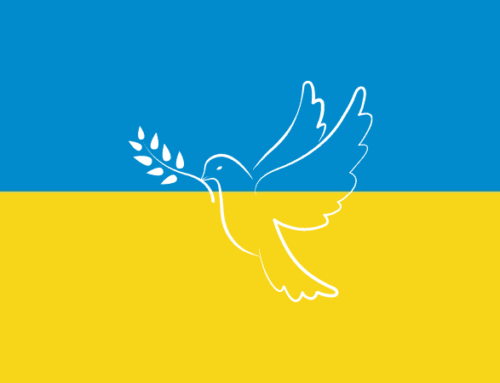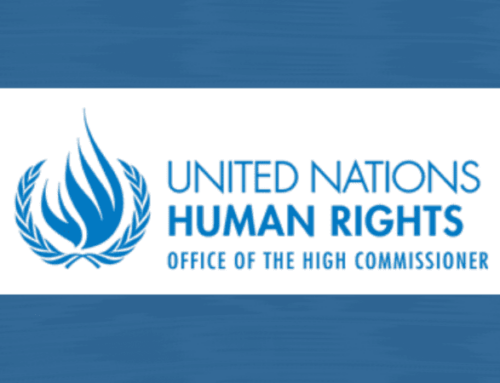Monitoring of the case of Andrei Tatarintsev (session 09.03.2020)

On September 3, 2020, an open court hearing was held in the Kuibyshevsky District Court of the Zaporozhye Region in the case of businessman Andrei Tatarintsev, who is accused of committing crimes under Part 1 of Art. 258-3, part 5 of Art. 27, part 2 of Art. 28, part 2 of Art. 437, part 1 of Art. 438 of the Criminal Code of Ukraine (financing a terrorist organization, complicity in the conduct of an aggressive war, cruel treatment of prisoners of war and the civilian population).
According to the lawyer of Andrei Tatarintsev, Vladimir Lyapin, in 2014-2015 the accused traded gasoline at an oil depot located on the territory uncontrolled by the Ukrainian government (ORDLO), the armed men who presented themselves as the military of the unrecognized republics of the “DPR / LPR” ordered him to transfer fuel to the ambulance station and other facilities.
Andrey Tatarintsev suffers from type 2 diabetes. Objective data obtained by the International Society for Human Rights during the monitoring of this proceeding, allow us to conclude that during the 3 years of detention, the accused did not receive medical assistance and dietary food prescribed for his illness.
At the beginning of the session, lawyer Vladimir Lyapin again announced that the leadership of pre-trial detention center No. 11, where the accused is being held, ignored the court decisions. At the last session, the court ordered the isolation ward to send a video recording confirming that Tatarintsev had been given prescribed drugs or had refused them. However, the pre-trial detention center suggested in writing to contact the branch of the state institution “Center for Health Protection” on this issue. Although, according to Tatarintsev himself, the filming is directly carried out by the duty assistant to the head of the pre-trial detention center. Also, Tatarintsev again confirmed that from August 21, i.e. from the moment of examination by an endocrinologist and the appointment of treatment, the medical unit workers do not give him the prescribed medicine, but offer three unknown pills, packed in a paper bag, without specifying the name, dosage and expiration date. The court disregarded these explanations and suggested that the defense go to the petition, which had previously been registered with the court registry.
Lawyers Vladimir Lyapin and Vadim Kravtsov in accordance with Art. 201 and Art. 206 of the Criminal Procedure Code of Ukraine petitioned to change the measure of restraint for Andrey Tatarintsev. To substantiate their position, they cited paragraph 60 of the ECtHR judgment of 06.10.2008 in the case “Yeloyev v. Ukraine”: “After a certain time has elapsed, the existence of reasonable suspicion ceases to be the basis for depriving a person of liberty, and the judicial authorities must provide other grounds for continuing the detention”.
The ISHR draws attention to the fact that a similar position, which meets the requirements of Part 3 of Article 5 of the Convention, is set out in the decisions “Yablonsky v. Poland”, N 33492/96 para. 80, 2000-XII and “I.A. v. France”, no. 28213/95, para. 102, 1998-VII.
In addition, lawyers quoted an excerpt from the 15th report of the OHCHR on the human rights situation in Ukraine (May 16 – August 15, 2015):
“OHCHR has documented a clear and consistent trend in human rights violations against individuals against whom charges of conflict, national security or terrorism are brought, often starting with arbitrary arrest and detention. OHCHR recalls that the prohibition of unjustified detention presupposes that the detention of persons pending trial should be an exceptional measure of restraint. The conditions under which this measure is applied should be listed in the legislation, and they should not include such vague and inexhaustible standards as “ensuring public safety”. Detention cannot be applied as a compulsory measure of restraint to all persons accused of committing a specific crime, regardless of individual circumstances. During the monitoring of the court hearings, OHCHR drew attention to the fact that neither the prosecution nor the judges check the circumstances for the continued detention of suspects. Courts rarely consider using alternative non-custodial measures such as bail. ”
According to the lawyer V. Lyapin, the materials of the criminal proceedings against A. Tatarintsev do not contain evidence provided by the Criminal Procedure Code that the “Donetsk people’s republic” and “Luhansk people’s republic”, designated in the indictment as terrorist organizations, are recognized as terrorist in the manner prescribed by law organizations. According to the Law of Ukraine “On Combating Terrorism”, an application for holding an organization accountable for terrorist activities is submitted to the court by the Prosecutor General of Ukraine, prosecutors of the Autonomous Republic of Crimea, regions, cities of Kiev and Sevastopol in the manner prescribed by law.
Lawyer Lyapin repeated that the proceedings did not contain the decision of the Ukrainian court on the appeal of the subjects specified in Art. 24 Law of Ukraine “On Combating Tterrorism”, which would recognize the “DPR” or “LPR” as a terrorist organization. Also, according to him, the UN Security Council and the Council of Europe refused to recognize these organizations as terrorist, and the ICRC noted in September 2014 that there is a civil war in Ukraine and called on the parties to the conflict to adhere to international conventions. The defense side indicated that it had received official replies from the Office of the President, the Parliament Committee on National Security, the Supreme Court of Ukraine, regional prosecutor’s offices of Ukraine, the Security Service of Ukraine and others that the appeals for recognizing the “DPR” and “LPR” as terrorist (in accordance with the law) have not been reported.
In addition, when petitioning to change the measure of restraint, the defense referred to the Criminal Procedure Code of Ukraine, which says that the prosecution must prove to the court, in addition to the validity of the charge and the existence of risks of non-procedural behavior of the accused, also the impossibility of applying a milder measure of restraint. According to paragraph 34 of the ECtHR judgment in the case “Zentsov and Others v. Russia”, N 35297/05 of 04.25.2013, the accused must be considered innocent until he is found guilty. Thus, the lawyer stated that an accused of a crime should always be released pending trial, unless the state can prove that there are “substantial and sufficient” reasons to justify continued detention. According to paragraph 8 of the ECtHR judgment in the case “Mkhitaryan v. Russia”, N 46108/11, dated 02.05.2013, the national authorities are obliged to establish the existence of specific facts that may become the basis for extending the detention period.
Lawyer Lyapin recalled that the Korolevsky District Court of Zhitomir came to the same conclusions by its ruling of June 27, 2018, softening the measure of restraint for the accused under Part 2 of Art. 110, Part 1 of Art. 111, Part 2 of Art. 161, part 1 of Art. 258-3 of the Criminal Code of Ukraine of journalist Vasily Muravitsky. Also, the Kiev Court of Appeal on February 21, 2018 softened the measure of restraint for Dmitry Vasilets and Yevgeny Timonin, accused under Art. 258 – 3 part 1 of the Criminal Code of Ukraine.
In addition to the above as justification for the need to change the measure of restraint, the defense noted that on August 21, the accused Tatarintsev was examined in the pre-trial detention center by endocrinologist S.V. Tovstyga, who prescribed treatment for him. On August 25, the lawyer sent a request to the branch of the state institution “Health Protection Center” of the Zaporozhye region, in which he asked for information about the availability of appropriate drugs in the medical unit of the pre-trial detention center and the provision of them to Tatarintsev. The response, which was received on August 28, does not state anything about the availability of the requested drugs, but it says that Tatarintsev is given completely different drugs. Thus, the court, according to the position of the lawyer, does not exercise judicial control and does not provide Tatarintsev with the necessary treatment, which is identical to the use of torture against him.
Experts of the International Society for Human Rights draw attention to the fact that failure to provide adequate and timely medical care in places of deprivation of liberty is tantamount to inhuman and degrading treatment (cases “Garumov v. Ukraine”, p. 46; “Hummatov v. Azerbaijan,” pp. 112-122; “Wuhan v. Ukraine”, pp. 77-83; “Petukhov v. Ukraine”, pp. 91-98; “Sergey Antonov v. Ukraine”, pp. 70-75). In May 2020, the ECtHR ruled in the case “Kadagishvili v. Georgia” in which it recognized a violation of Article 3 of the European Convention in a situation where an accused prisoner with diabetes mellitus does not have access to the necessary treatment and a special diet. Tatarintsev has been in a similar situation for a long time.
In this regard, the defense asked to change Tatarintsev’s measure of restraint to house arrest with the obligation to wear an electronic bracelet or bail.
After leaving the deliberation room, the court rejected the defense’s petition and ordered the branch of the Health Protection Center to provide the accused with treatment, provide documents confirming the possibility of keeping Tatarintsev in the pre-trial detention center, and also ensure that the prosecutor’s office inspects the treatment of the accused.
Thereafter, the court proceeded to consider the motion to declare the evidence obviously inadmissible. Lawyer Lyapin asked to recognize the protocol of Tatarintsev’s detention as such, since it was drawn up in violation of the norms of the Criminal Procedure Code and the right to defense. During a search under Part 1 of Art. 258-3 Tatarintsev was not provided with a lawyer, which is confirmed by the absence of the lawyer’s name in the list of persons who took part in the search. The public defender appeared to sign the protocol only at 10:40 am, while the arrest took place at 8:40 am.
The court also did not satisfy this request, since it did not find any signs of obvious inadmissibility and will assess this document in the deliberation room during the sentencing.
The next court hearing in the case of Andrei Tatarintsev will take place on September 24, 2020 at 1:30 pm.






Leave A Comment